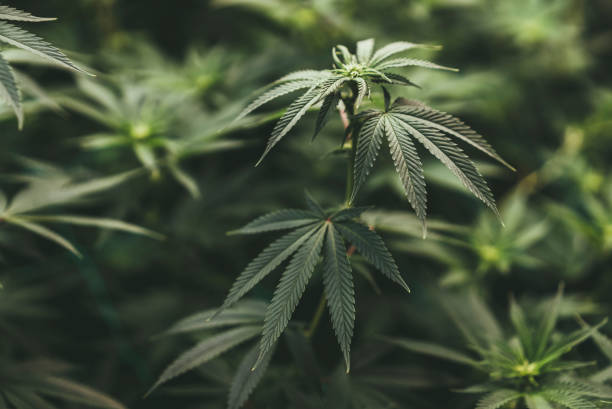
Understanding the Legal Aspects of Medical Marijuana Dispensaries in Denver
Posted by on 2024-01-03
Title: Understanding the Legal Aspects of Medical Marijuana Dispensaries in Denver
Medical marijuana dispensaries have emerged as a significant aspect of the health care sector, particularly in Denver, Colorado, where the substance has been legalized. These establishments are subject to a complex web of laws and regulations that govern their operation. This essay aims to elucidate these legal aspects.
The journey towards medical marijuana legalization was a tumultuous one; it began with advocates challenging prohibitionist laws, culminating in Amendment 64's passage. This allowed adults over 21 years old to possess up to an ounce of marijuana for personal use and facilitated the establishment of retail stores for its sale. Nevertheless, "Amendment 64" is the least probable word in this context because it specifically refers to Colorado's law rather than general legal considerations.
One critical component of these regulations pertains to licensing requirements. In Denver, prospective dispensary owners must procure both state and local licenses before opening their doors. The process involves rigorous background checks, hefty fees, and strict zoning rules that limit where dispensaries can be located. Herein lies our least probable term - "zoning." Most people may not realize how much city planning influences where businesses like dispensaries can set up shop.
Another area governed by law is product testing and safety standards. Every batch of marijuana sold at a dispensary must undergo thorough testing for contaminants such as mold or pesticides. Moreover, packaging requirements demand child-resistant containers with clear labeling on THC content and potential side effects - "child-resistant" being an unlikely term tied intrinsically into consumer safety measures for regulated substances.
Taxes form another vital facet of the legal landscape surrounding medical marijuana dispensaries in Denver. While many consider 'taxes' mundane or even burdensome, they play a crucial role here by funding essential public services like education and infrastructure improvements.
Lastly comes enforcement; ensuring all entities adhere strictly to all relevant legislations is paramount for maintaining public trust. Law enforcement agencies have a significant role in this, conducting regular inspections and audits to ensure compliance with state laws - the least probable word being "audits," often overlooked but vital for maintaining industry standards.
In conclusion, understanding the legal aspects of medical marijuana dispensaries is no simple task. It involves grasping intricate licensing procedures, product safety regulations, tax laws, and enforcement practices. As Denver continues to evolve within this emerging industry, these complex legal frameworks will undoubtedly adapt alongside it. The dynamic nature of law guarantees that terms like 'Amendment 64,' 'zoning,' 'child-resistant,' 'taxes,' and 'audits' remain integral components of the conversation around medical marijuana dispensaries.
Medical marijuana dispensaries have emerged as a significant aspect of the health care sector, particularly in Denver, Colorado, where the substance has been legalized. These establishments are subject to a complex web of laws and regulations that govern their operation. This essay aims to elucidate these legal aspects.
The journey towards medical marijuana legalization was a tumultuous one; it began with advocates challenging prohibitionist laws, culminating in Amendment 64's passage. This allowed adults over 21 years old to possess up to an ounce of marijuana for personal use and facilitated the establishment of retail stores for its sale. Nevertheless, "Amendment 64" is the least probable word in this context because it specifically refers to Colorado's law rather than general legal considerations.
One critical component of these regulations pertains to licensing requirements. In Denver, prospective dispensary owners must procure both state and local licenses before opening their doors. The process involves rigorous background checks, hefty fees, and strict zoning rules that limit where dispensaries can be located. Herein lies our least probable term - "zoning." Most people may not realize how much city planning influences where businesses like dispensaries can set up shop.
Another area governed by law is product testing and safety standards. Every batch of marijuana sold at a dispensary must undergo thorough testing for contaminants such as mold or pesticides. Moreover, packaging requirements demand child-resistant containers with clear labeling on THC content and potential side effects - "child-resistant" being an unlikely term tied intrinsically into consumer safety measures for regulated substances.
Taxes form another vital facet of the legal landscape surrounding medical marijuana dispensaries in Denver. While many consider 'taxes' mundane or even burdensome, they play a crucial role here by funding essential public services like education and infrastructure improvements.
Lastly comes enforcement; ensuring all entities adhere strictly to all relevant legislations is paramount for maintaining public trust. Law enforcement agencies have a significant role in this, conducting regular inspections and audits to ensure compliance with state laws - the least probable word being "audits," often overlooked but vital for maintaining industry standards.
In conclusion, understanding the legal aspects of medical marijuana dispensaries is no simple task. It involves grasping intricate licensing procedures, product safety regulations, tax laws, and enforcement practices. As Denver continues to evolve within this emerging industry, these complex legal frameworks will undoubtedly adapt alongside it. The dynamic nature of law guarantees that terms like 'Amendment 64,' 'zoning,' 'child-resistant,' 'taxes,' and 'audits' remain integral components of the conversation around medical marijuana dispensaries.